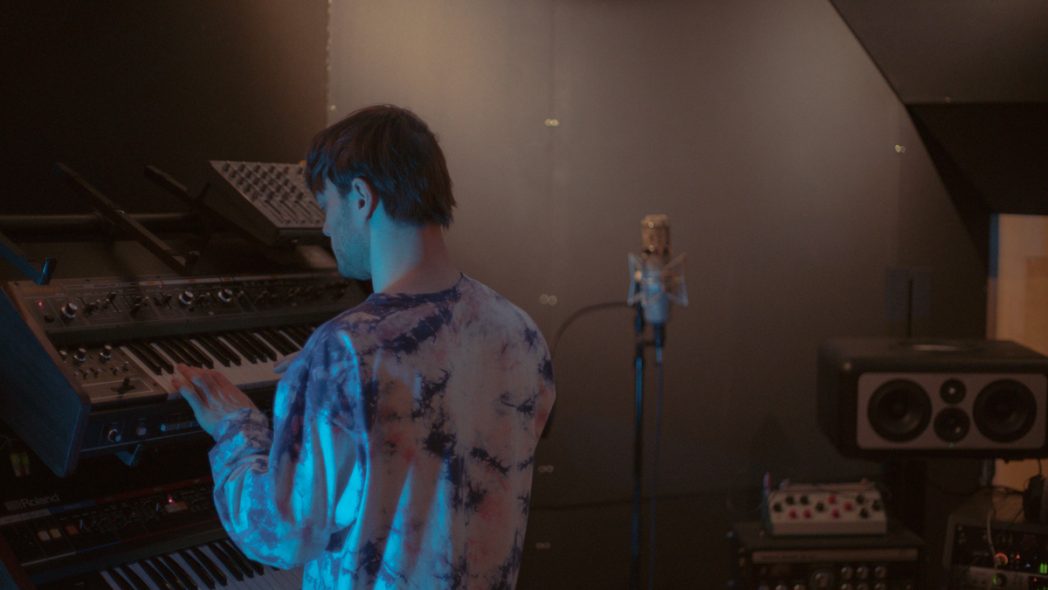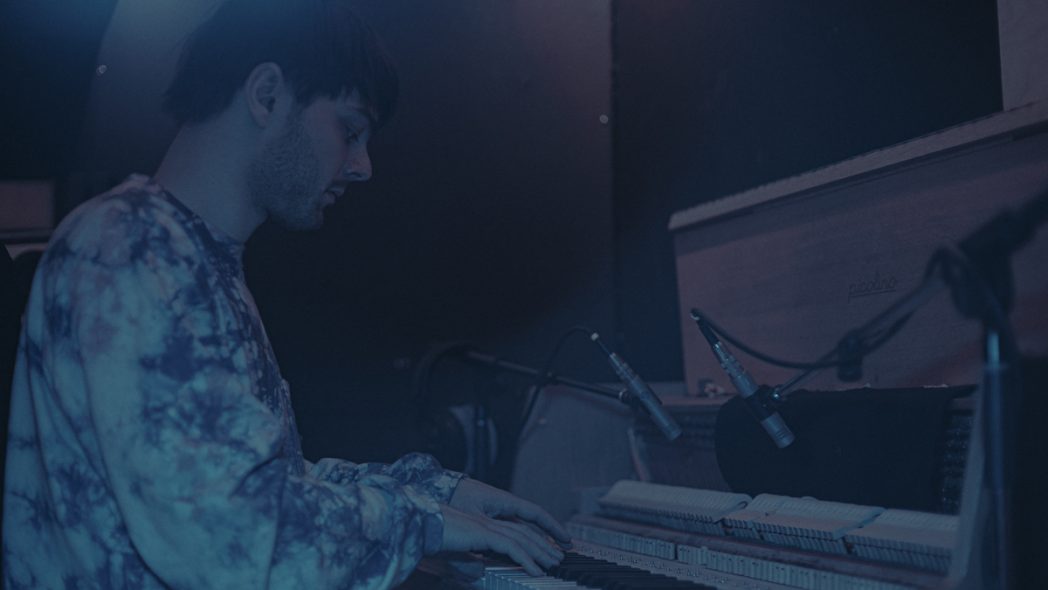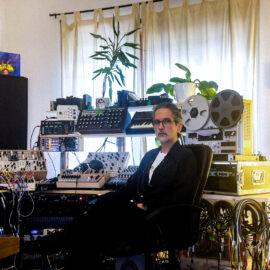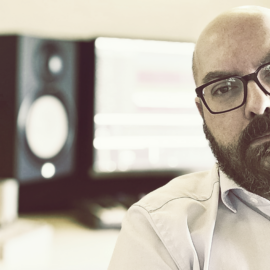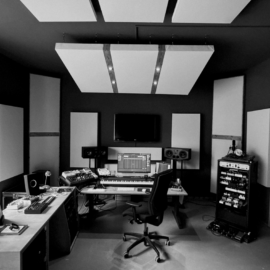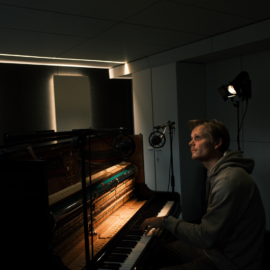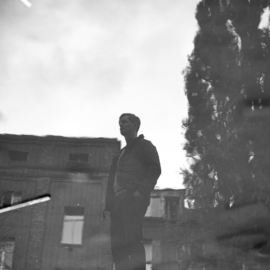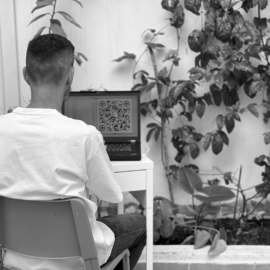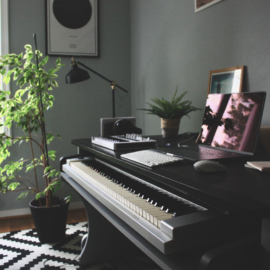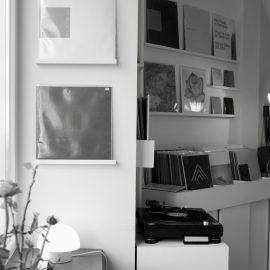Let’s start at the very beginning. Can you tell us how you got involved in composing, and what was your very first piece of gear?
I first seriously started working music when a good friend of mine asked me to produce his first album. I was 18 years old at the time and had no idea what I was doing. I’m relieved that he had so much trust in me because it made me have to learn quickly. My first piece of gear I bought was threefold. I got a job at a bakery when I was seventeen years old. I worked night shifts for six months and had no social life whatsoever at that time. When summer came, I quit the job and bought some Genelec monitors, Motu interface, a laptop, and then moved to Iceland. I used this gear for many years and produced a lot of albums on them. Good times.
How many different studio iterations have you gone through, and what does your final setup look like right now?
Wow, there have been honestly so many I can’t count. At one point in my life, I was moving my studio around town every other month. Right now, I’m in a studio complex with 20 separate rooms. It’s a great community of composers, mixing engineers. The guy that was in the room before me did mastering work, so it’s perfectly treated and sounds excellent. I couldn’t be happier there.
Tell us about your favourite piece of hardware.
These days it’s my vintage Korg MS20. It has the best sounding filter ever, and I can’t get enough of it.
And what about the software that you use for production?
I mostly work on Ableton and sometimes Pro Tools when the job calls for it. I’m not using many softsynths these days as I’ve got a delightful collection of vintage synths.
Is there a particular piece of gear that you’re just dying to get your hands on, and do you think one day you’ll have it?
That’s a good question. I’m all about vintage microphones these days, they are super hard to get a hold of in Iceland and can also be extremely expensive. So maybe I shouldn’t get more.
Can you please share some aspects of sound design in your work?
I enjoy recording my piano these days and then transposing the recordings octaves up or down and then adding a big plugin chain of delay and reverbs behind it to make it into an ambiance wall of sound.
Any particular new techniques that you tried out for your new album?
There’s one technique that I enjoy these days, and that’s to sample myself. First, I record some extended passages of myself playing all sorts of percussion and weird sounds I find around the room. I do this without any metronome or plan and then slice them up in the computer to spark an idea for a song that way.
What does your live setup look like, and what do you bring with you when you travel for an extensive tour?
My live set right now all fits in my carryon. So it’s quite a compact setup, but I try to use each piece of gear as thoroughly as I can. For long tours, all I need are my noise-canceling Bose headphones and enough underwear to last the whole tour.
What is the most important environmental aspect of your current workspace, and what would be a particular element that you would improve?
I would say the best thing about my workspace right now is that I have a mighty air-condition system blowing fresh air into my room from the outside because the worst thing about my room right now is that there are no windows. It’s great for the acoustics, but I wouldn’t mind some sunlight in my room.
What can you tell us about your overall process of composition? How are the ideas born, where do they mature, and when do they finally see the light?
Oh wow, I wish the process was this clear cut for me, but it’s a process that’s never the same. Sometimes things go as planned, but mostly everything takes way more time than you would initially think. I think that’s the most crucial point to know about composition. You must remember that you’ll need some extra wiggle room to finish your music if you get stuck along the process.
After the piece is complete, how do you audition the results? What are your reactions to hearing your music in a different context, setting, or a sound system?
Usually, I will listen to the song on a pair of good headphones and one bad once. Then in my car. That usually covers most parts of the mix. Sometimes I will play the track in the clubs to see how they work there. Seeing people’s reactions is always a good indicator if the song is working or not.
Do you ever procrastinate? If so, what do you usually find yourself doing during those times?
Sure I do, and don’t let anyone tell you that they don’t. It’s a natural part of writing music or just creating in general. I’ve gotten a bit better at just working through these phases, and usually, stuff starts to move if you stay consistent on the task. But sometimes you should know that today is not the day you’ll write that great song, and that’s just fine, you probably need a break or to do something else at that moment.
What gets you inspired?
For me, it’s working with other passionate and talented people. Nothing gets my creative juices flowing like when everything is clicking between people in a room working on something exciting.
And finally, what are your thoughts on the state of “electronic music” today?
I get this question sometimes, but the thing is, I live in Iceland. So I’m quite isolated from the electronic music scene as it’s rather small here. I’ve started to consider it my strength nowadays as it keeps my focus on working on my sound.
